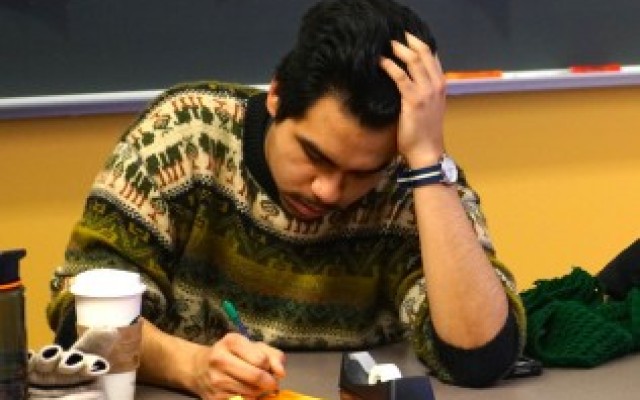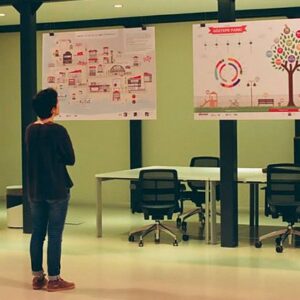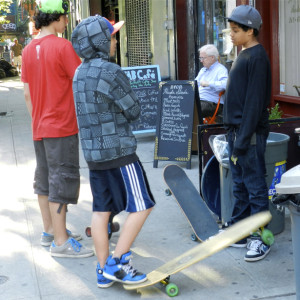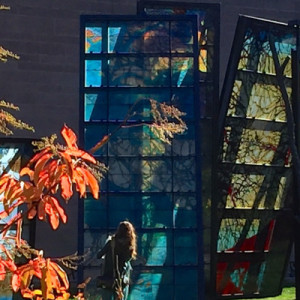First Semester Crucial for First Gens
Making the transition from high school to college is challenging for just about every young person. But making the transition to college — especially surviving the first semester — is crucial for first generation students. What creative solutions can support first gens during this first semester transition? And what can we learn from first generation students themselves?
Let’s face it. The road to college can be particularly bumpy for first generation students. These kids often need extra academic and emotional support to help them believe they can aspire to attend college; they can navigate the college admissions process; and they can be admitted to college. Once admitted, first gens often attend summer “bridge” programs that provide tutoring, supplemental academic courses and study skill seminars. All good. But once they get to campus, few first generation students are able to replicate the trusting adult and peer relationships they developed at home and during high school. This vacuum caused by the loss of a familiar support system before a new one can be built just adds to the overwhelming emotional and academic stressors experienced by far too many first generation students during that all-important first semester of college.
What actually happens to the first generation student once the freshman fall semester begins? Some sputter and drop out. Many experience a crisis in confidence. According to Beyond 12, only 8% of students in the bottom income quartile (where most first generation families reside), will earn a bachelors degree by age 24. Compare that statistic with the 82% graduation rate among students in the top income quartile.
One first generation Princeton student writes: “I was excited to tackle my first semester at Princeton … The excitement began to dwindle as the semester went on. … I was always comparing myself to other people … [and] I felt intimidated by those who said that their high schools prepared them well … I didn’t have the resources that I needed to prepare myself for college. … [and] my parents didn’t have the abilities to advise me on what I needed to do in order to succeed in college.”
Another first generation student struggling through freshman year at the University of Texas put it simply: “Getting into college is one thing. It’s actually sticking it through that’s the hard part.”
While there is burgeoning research on the importance of educational access for low income and first generation students, few studies ask first generation students what might help them survive the transition to college, especially the first semester. The Pell Institute for the Study of Higher Education is one group that actually commissioned a study in Texas that asked first generation students themselves to suggest solutions to the dilemmas they encounter as they made the complex transition from high school to college. Through a series of focus groups,
It’s nice to have your family holding one hand and to have someone else guide you from the other hand too. — First generation student from Texas
the researchers discovered that first generation students really wanted their parents involved in the first semester experience. They believed parental involvement might lessen the strains that often occur between the two very different worlds of home and school. When first generation students depart for college, family members perceive they have been left behind and fear they will lose their son or daughter upon entry to the strange new world of college.
First gens reported they were unprepared for the feelings of isolation and alienation experienced upon arriving on campus. They also worried about finances. First generation student financial aid packages, though generous, often cannot cover extra costs, such as study abroad. Finally, first gens reported they missed the supportive relationships they had developed with adults and peers in pre-college programs. Many viewed college faculty members as less supportive and less concerned about them than their high school teachers. They frequently don’t know where to turn for advice and guidance during the first semester.
The insights provided by first generation students as part of the Pell Institute study underline the importance of including first generation students in designing support programs that do not end when college begins. First generation students have lots of ideas. Listening to those ideas may ease the initial transition that occurs during first semester.
Design thinking, with its emphasis on empathy, may be a helpful approach to involve first generation students in solving problems directly affecting them. When first generation students are not the objects of study but rather the makers of their own creative solutions, there is increased potential for ownership and engagement once accepted to college, throughout the crucial first semester, subsequent college experience, and transition to career.
Has your community organization or higher education institution made use of design thinking to create systemic solutions to support first generation students in getting into college, staying in college, and finding professional pathways to success?














No Comments Yet!
You can be first to comment this post!